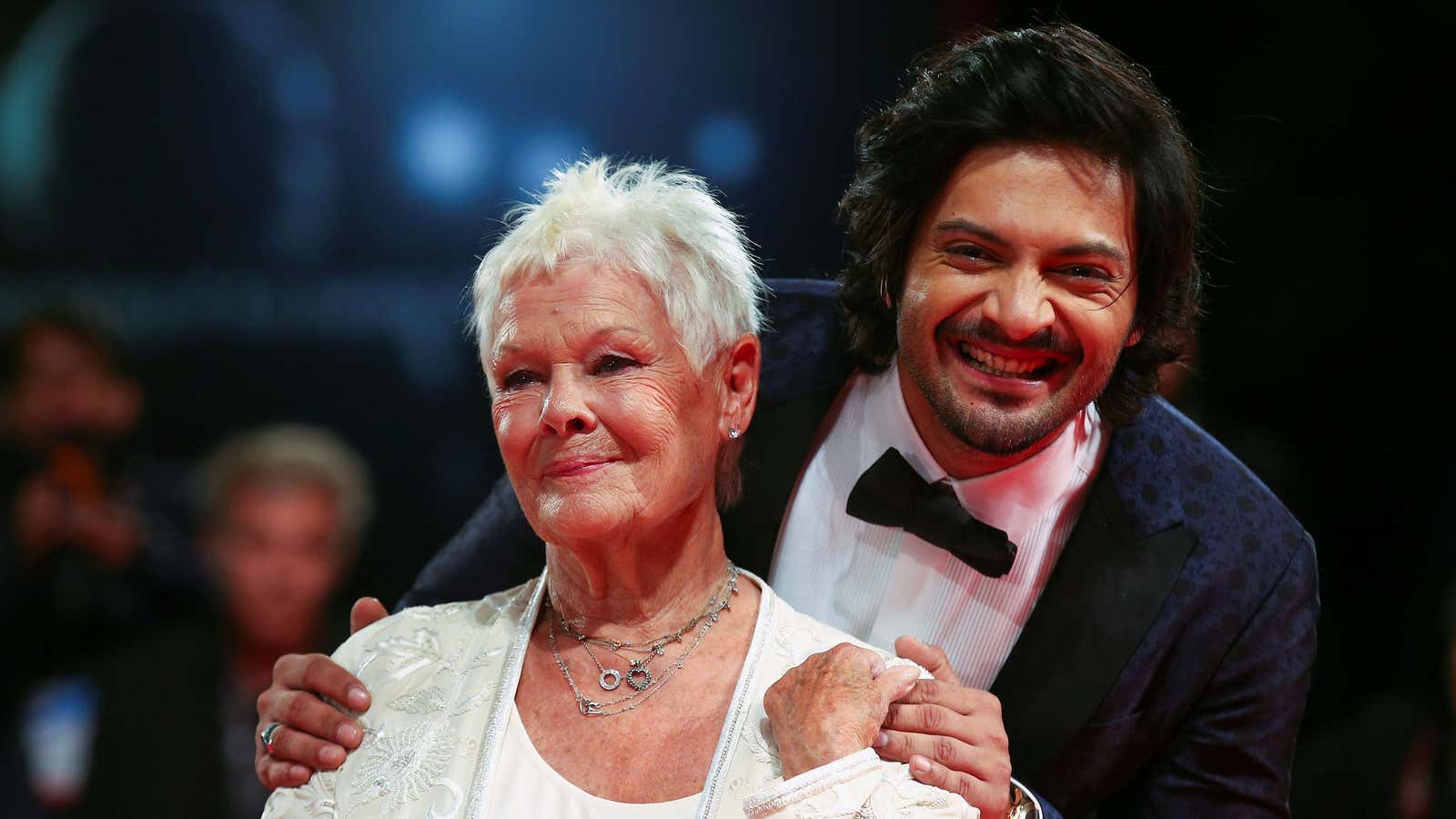Once a state-level athlete, a severe basketball injury in the late 1990s at the Doon School, Dehradun, pushed Ali Fazal indoors and onto the stage, acting and debating.
In the late-2000s, he moved to Mumbai for college, studying economics at St Xavier’s. On the side, he kept doing theatre.
During one of Fazal’s performances, celebrated Bollywood director Rajkumar Hirani spotted him and brought him on board for a cameo in 3 Idiots in 2009. Fazal played the memorable role of Joy Lobo, the guitar-wielding engineering student.
That was not his first break, though. The same year as 3 idiots, Fazal was also cast in the lead role in Saeed Akhtar Mirza’s comeback film, Ek Tho Chance—the trailer still lives on YouTube though the film was never released. It was the first of many times that success would be touch-and-go for him.
However, the 32-year-old actor has come a long way since, delivering hits like the multi-star comedy Fukrey (2013) and starring in the titular role in the Hollywood film Victoria & Abdul, alongside Judi Dench. Next, he’ll be seen in the web series, Mirzapur, on Amazon Prime which releases today (Nov. 16).
Fazal spoke to Quartz about his journey. Edited excerpts:
Is there a typical Bollywood hero today? Do you fit the description?
See, I can’t stand to keep the same hairstyle, which a lot of superstars have had to do. That’s how audiences wanted them at that stage, in that era, and now they’re stuck. So actually, we’re lucky in this generation because we can mould ourselves into anything. I’ve done a film where I’m a poster-boy hero. Then, I’m part of an ensemble. Then I’m the boy-next-door. And this year’s been all about action for me. For Mirzapur with Amazon, I’ve built up, gained 10 kgs of muscles, I’ve looked like a weirdo and I’m running about Varanasi and Mirzapur in India’s northern state of Uttar Pradesh shooting guns.
What is causing this wave of change?
Somewhere, the global stage is expanding and we’re becoming bold. My leading space has just become a huge canvas where I can explore because Netflix and Amazon Prime Video have come to India. My contemporaries and I are getting to work outside India. Today, if someone prefers somebody else over me for anything besides talent, I don’t care because the next thing’s going to come. Or if that doesn’t come, I actually can go outside and make my options. I’m a sucker for movies. I want to direct. And I’m not going to wait till I’m 60 to do it.
Do you think web content is the future?
It’s a great step forward. The first few web series were like, since there’s no censorship, so every second thing was about sex and filled with abuses. Once we were out of that little phase, the real work started. It’s about doing good work. At the same time, if you ask any actor, he would never say no to celluloid. That’s like the heart of cinema.
But footfalls in theatres are falling. Are films still the gold standard?
Unfortunately, in India, we live on formulas—this is working, do this only. We are forever scared to experiment but now we can because the nature of the audience is changing. Imagine a Stree comes in with a Yamla Pagla Deewana and Yamla has flopped. Who would’ve thought that would happen three years back?
What has kickstarted the content revolution in India?
We have started respecting our writers. It’s not some producer sitting and saying I’ll choose. It’s the director and writer who choose.
How did Hollywood first happen for you?
After Always Kabhi Kabhi (2011), there were some movies I did in the middle that I’m not very proud of. Then, Fukrey happened. Then, Bobby Jasoos and Happy Bhag Jayegi happened and I had my stint with the Bhatt camp. In the middle somewhere, Hollywood happened with Furious 7. A friend randomly said, “why don’t you try for this?” So I recorded my audition on my phone and got the part. Within a week, I was sitting in the US.
How was the experience of working in the West?
Hollywood is an industry that started before us so we shouldn’t be surprised if they’re 15-20 years ahead of us in terms of technology. It’s also economics. Their lowest budget films are sometimes our highest budget films. When you know you’re dealing with big money, you’ve got to take care of every small thing. And not just Hollywood, Tamil cinema and Malayalam cinema are also great…We’ve always neglected them, and they’ve leaped way ahead of us.
And what has been your biggest challenge?
I always believe our greatest challenges lie ahead of us. Abdul is not the most challenging role now but it was two years ago. I locked myself up and I’ve read more books than I ever did in my entire school life. As much as I love reminiscing about it, it took a toll on me. Now, I see this huge mountain in front of me in the West, in global cinema, and I want to climb that.
